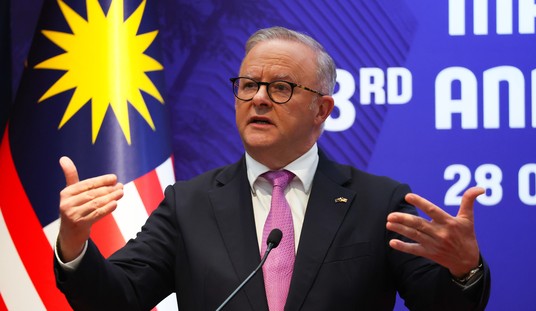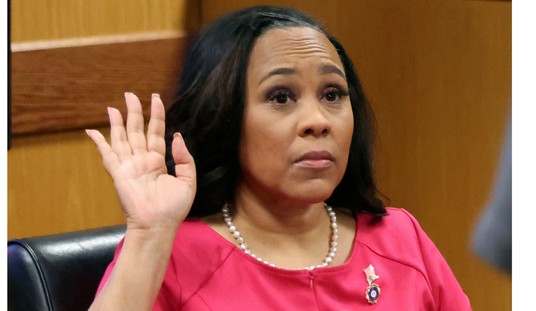Hillary Rodham Clinton, in a speech that was at times sweeping and at times policy laden, delivered on Saturday a pointed repudiation of Republican economic policies and a populist promise to reverse the gaping gulf between the rich and poor at her biggest campaign event to date…
“I’m not running for some Americans, but for all Americans,” Mrs. Clinton said. “I’m running for all Americans.”
Offering her case for the presidency, she rested heavily on her biography. Her candidacy, she said, was in the name of “everyone who has ever been knocked down but refused to be knocked out.”
Tough mother. That’s both the theme of Hillary Clinton’s big speech on Saturday and the emerging theme of her campaign. According to a preview of her remarks, Clinton will talk about her mother’s struggles and how they guide her and her campaign, which the candidate has fashioned around four tough fights. Since announcing her campaign in April, at every stop Clinton has said she will advocate for families, remove money from politics, increase wages for the middle class, and protect America. How is she going to do these things? She’s going to fight.
Clinton’s strategy is one her husband often employed. No matter what personal or political troubles Bill Clinton found himself in, he always presented himself as a tireless fighter, someone who’d go into pitched battle for voters. The blunt political calculation is that even if voters don’t find Hillary Clinton trustworthy—and only 42 percent do in a recent CNN poll—they will support the person who they think will fight for their interests. As Ron Brownstein has argued, Hillary Clinton doesn’t need Americans to trust her.
Fight, fight, fight. Clinton rarely misses an opportunity to raise her gloves, even when she is making a joke about something else. “I’m aware I may not be the youngest candidate in this race,” Clinton told Democrats in South Carolina in May. “But I have one big advantage: I’ve been coloring my hair for years. You’re not going to see me turn white in the White House. And you’re also not going to see me shrink from a fight.” Friday the campaign released a Web video titled “Fighter.” (If by now you haven’t gotten the message, the candidate may have to come over and beat you up.)
Is It Just Me or Does Hillary Talk Like a Robot?
Seriously, she does. Not only does she pronounce the word “a” slowly and distinctly, like it’s the answer to a multiple-choice question, without linking it to the words before or after, and not only does she sometimes put little pauses between each word (“it’s . . . America’s . . . basic . . . bargain”) or in inappropriate spots (“it’s the same old . . . song”), but she often puts odd stresses on words, seemingly at random: “too many of our kids never learn as they should”; “we see far more opportunities than threats”; “fight back against those who would drive us apart.” Toward the end of her speech she began to seem a bit more natural, but for most of it, she sounded like a machine that had been programmed to synthesize speech and was still learning the fine points. Her husband and President Obama are much better at sounding like they aren’t reading from a script…
During these longueurs, the PA system played the same half-dozen songs over and over. One of them was Kelly Clarkson’s “What Doesn’t Kill You Makes You Stronger” — a title very much in keeping with her campaign theme of Hillary the Fighter, but knowing what we do about the Clintons, each of the 37 times it was played, I found the opening line a little jarring: “You know the bed feels warmer, sleeping here alone . . . ”
Indeed, in her speech, the former secretary of state suggested that she is so much a fighter that she will fight not one, not two, not three, but four fights on behalf of the American people. “If you’ll give me the chance, I’ll wage and win Four Fights for you,” Clinton told the crowd. Those fights are: 1) the fight “to make the economy work for everyday Americans”; 2) the fight “to strengthen America’s families”; 3) the fight “to harness all of America’s power, smarts, and values to maintain our leadership for peace, security, and prosperity”; and 4) the fight for “reforming our government and revitalizing our democracy.”
Apparently Clinton thought the Four Fights motif would work with the Four Freedoms the park was built to commemorate, even though the Four Fights and the Four Freedoms are quite different things. (In the 1941 Four Freedoms speech, given with the nation on the brink of war with totalitarian forces, Roosevelt said that “we look forward to a world founded upon four essential human freedoms … freedom of speech and expression … freedom of every person to worship God in his own way … freedom from want … [and] freedom from fear.”)
Whatever the differences between 1941 and 2015, Clinton decided that the Four Fights, which would be waged mostly with Republicans, would be the centerpiece of her speech and campaign. “She wrote this speech herself,” Clinton spokesman Brian Fallon told CNN after the event. “This was very personal.”
On ABC’s “This Week” Sunday, host George Stephanopoulos pressed Clinton adviser Joel Benenson to answer a rather simple question — whether his candidate supports giving “Fast Track” authority to the president on trade deals.
Benenson tried to dismiss the debate as insider Washington “political jockeying,” and said she’s waiting to see what the final deal looks like.
Then he coughed up this gem: “She wants to see the final deal, she wants to make sure it protects American workers, and that’s what she’s fighting for.”…
To recap, right now there’s a major trade fight, pitting unions and progressive activists against President Obama. Most people would see “fighting” in this case as staking out a clear position, and adding her prominent voice to the debate while it’s ongoing, in hopes that the final deal is closer to reflecting what she says she believes about protecting American workers. Instead, she’s “fighting” by sitting at ringside and dispatching surrogates to promise that she’ll take a position after the fight is over.
As Mrs. Clinton intensifies her campaign for the Democratic nomination, it is clear from her left-leaning policy stances, her hiring and her focus on data-driven organizing that her strategy is modeled on Mr. Obama’s, not her husband’s.
If she won, it would suggest that the so-called Obama coalition of young, nonwhite and female voters is transferable to another Democrat. And it would validate the idea that energizing core supporters is more important in presidential contests than persuading those still undecided…
By emphatically staking out liberal positions on gay rights, immigration, criminal justice, voting rights and pay equity for women, Mrs. Clinton is showing core Democratic constituencies that she intends to give them a reason to support her…
“The highest-premium voter in ’92 was a voter who would vote for one party some and for another party some,” said James Carville, Mr. Clinton’s chief strategist in 1992. “Now the highest-premium voter is somebody with a high probability to vote for you and low probability to turn out. That’s the golden list. And that’s a humongous change in basic strategic doctrine.”
New Jersey Gov. Chris Christie took a swipe at Hillary Clinton today, saying he doubts whether the Democratic presidential candidate knows the concerns of “real Americans.”
Christie, who hasn’t entered the presidential race, said Clinton’s speech during her campaign rally Saturday in New York City sounded like it was put together by “liberal political consultants.”
“Mrs. Clinton doesn’t hear from anybody, she doesn’t talk to anybody, she doesn’t take questions from anybody,” Christie said in an exclusive interview on ABC’s “This Week.” “How would she know what real Americans are concerned about?”
“If she won,” Martin and Haberman write, “it would suggest that the so-called Obama coalition of young, nonwhite and female voters is transferable to another Democrat.”
As I’ve been writing for a while, I’m extremely dubious. Here are four reasons. First, Obama didn’t really run as a polarizing figure in 2008. He ran as a post-partisan reformer who would end gridlock and fix the failures of the two-term incumbent (as did George W. Bush and Bill Clinton before him).
Second, Obama was a very good politician without much baggage (that the media were willing to report on). Clinton is a mediocre politician with mountainous baggage. Third, Obama’s coalition has never been transferable to any other cause or politician, despite the president’s best efforts. And last, Clinton is running to stay the course.
The Obama veterans around Clinton boast of their willingness to break with the practices of the past. But it looks more like they can’t break out of their own Obama bubble, running the same plays for a very different quarterback.
Where is Mrs. Clinton vulnerable? Voters tend to cast ballots for people they like, and so Mrs. Clinton’s declining public image could prove to be a problem. The share of people with a negative view of her is rising.
And Mrs. Clinton is not the top choice of people who view national security and terrorism as a top issue for the government to address. If concerns about Islamic State or terrorism rise, that could present a challenge to Mrs. Clinton, particularly given her work on foreign policy within the administration.

Through all of Hillary Clinton’s recent troubles — emails, foundation, Benghazi — Democrats have taken comfort in their all-but-assured nominee’s formidable lead over top Republicans in head-to-head matchups. Now that lead is shrinking, and the Democratic comfort level is falling along with it…
A PPP poll at the end of March showed Clinton with a four-point lead over Walker, a four-point lead over Paul, a three-point lead over Rubio, and a six-point lead over Bush — at a time the other polls showed Clinton far ahead of those rivals.
“I am definitely skeptical that Clinton was ever really up by 15 points like some of the early polls were showing,” says PPP director Tom Jensen. The reason for those big leads, Jensen suggested in an email conversation, might have more to do with the other polls’ methods rather than any overwhelming Clinton advantage…
If Jensen and PPP are correct, then the core assumption of much political analysis in the last few months was little more than irrational exuberance. Now that Clinton is returning to earth in other polls as well — PPP has a new poll out in about 10 days — the question will be how Democrats react to the realization that there once-inevitable shoo-in president might not be an inevitable shoo-in after all.
Beyond that, the speech demonstrated that despite claiming decades of experience, she has little to show for it in terms of actual accomplishments — and those accomplishments she does take credit for can be easily exposed as fantasy…
Add this to the mounting scandals, polls showing a lack of trust for her, the historical difficulty of political parties winning three presidential elections in a row, and the deep bench of fresh-faced Republican options, and the GOP should be in prime position to win the next election…
Hillary Clinton displayed today her tremendous weaknesses as a candidate. All she has going for her is the hope that pushing the right buttons on identity politics and promising new government benefits, Americans will overlook what they don’t like.
When Republicans lost two elections to Obama, it was easy to explain away as a special phenomenon. In 2008, Obama was a rock star running against a boring old senator who represented an incumbent party that had presided over an unpopular war and financial crash. In 2012, he ran for re-election against a weak candidate who had trouble winning over his own party.
But in 2016, Republicans have the ability to nominate a formidable candidate to put up against a Democrat with lots of baggage. If they blow it, then it may be time to throw in the towel.
“She’s 67,” Hewitt said. “She’ll be 69 if she wins and I think she will – the presidency.”…
“I wrote ‘The Queen’ because the advice, if she takes it, she’ll win,” he explained. “So if I put it on the table, maybe she won’t take it because the Electoral College is so freaking against the Republicans. And so, we have to nominate the perfect ticket. They have to make a lot of mistakes. The Jets did beat the Colts, right – in Super Bowl III. So, it’s possible. The heavy underdog can win. We are the heavy underdog. But if she does the right thing and she’s awfully smart, and she’s got a lot of money, and the Republicans are going to carve each other up. Sen. Ted Cruz (R-TX) today – he’s terrific and I write in ‘The Queen’ he could win, or he could lose 44 states. It’s more likely he’s going to lose 44 states because she is good and disciplined and does her work. So I am not an optimist, but that’s why I wrote the book – to increase our chances that much.”








Join the conversation as a VIP Member